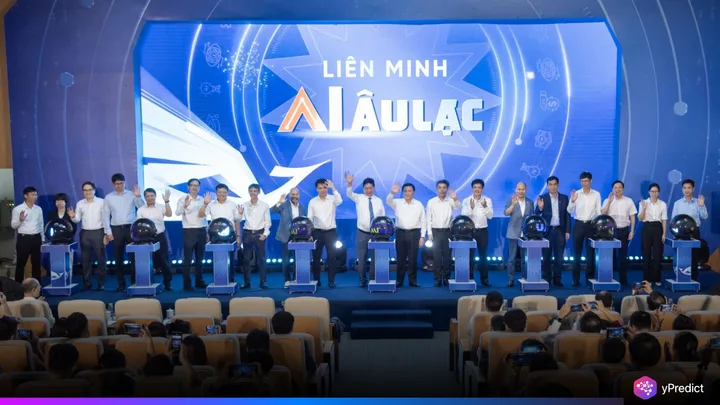
A new alliance in Vietnam is taking on global tech giants with a bold plan for AI independence. The Au Lac AI Alliance, launched June 20 in Hanoi, brings together 21 key organizations, including FPT, VNPT, MoMo, and top universities. Their goal? Build Vietnamese-language AI models to ensure the country controls its digital future. Professor Nguyen Xuan Thang, a Politburo member, called the move vital to national sovereignty. “We must assert ourselves in the digital realm,” he said.
The alliance also aims to make AI more accessible, open-source, and culturally rooted. With support from top researchers and government bodies, Vietnam hopes this initiative will strengthen its tech position. The country has long relied on foreign-language models. Now it wants AI that understands local culture, values, and context, built by Vietnamese minds. As AI reshapes the world, Vietnam is moving quickly to shape its own path.
Inside the AI Alliance’s Mission to Localize Vietnamese AI
The Au Lac AI Alliance is not just another tech group. It is a national effort to build large language models (LLMs) that understand Vietnamese, reflect local culture, and serve real-life needs. The models are designed to support sectors like education, finance, and government. At the launch, Prof. Thang praised the name “Au Lac” as a symbol of Vietnam’s ancient sovereignty. “Now we must assert that spirit in the AI age,” he said.
The alliance includes firms like FPT, MobiFone, and CMC, and top schools like Hanoi University of Science and Technology. They plan to pool their tech, data, and talent to build tools from scratch, with Vietnam’s voice at the core. The project also promises open access. Source code, data, and models will be shared for both public and commercial use. This open ecosystem, say its backers, will drive innovation faster and make AI more inclusive for smaller players.
Can the AI Alliance Overcome Barriers to Vietnam’s AI Future?
Truong Gia Binh, Chairman of FPT and of the new alliance, says Vietnam must act now or risk falling behind. He outlined three major challenges: security, development, and resources. “Technology sovereignty is national sovereignty,” he said, noting the risks of relying on foreign platforms. He added that Vietnam aims to become a developed country by its 100th year of independence, and AI is key to that mission.
But Vietnam lacks the funding power of global tech powers. The U.S., China, and others invest billions in AI each year. Vietnam doesn’t. So the alliance is betting on community strength, urging students, workers, and developers to contribute time, ideas, and data. AI education will start from grade school, said Binh. Over 50 million workers are being encouraged to learn about AI, with training programs and competitions planned. He called the alliance “a first ray of dawn,” framing the challenge as a national intellectual battle, and one that Vietnam can win.
Vietnam’s Tech Identity Takes a Confident Step Forward
Vietnam’s launch of the Au Lac AI Alliance marks more than a policy shift. It signals a growing desire to lead, not follow, in the global AI race. As other countries build models shaped by their own languages and cultures, Vietnam is asserting its voice.
By focusing on open access, education, and cultural integrity, the alliance hopes to build not only AI tools, but trust. Success will require time, talent, and teamwork, but the ambition is clear. “If we win this intellectual battle,” said Binh, “we will rise to glory.” The world is watching how Vietnam’s AI journey unfolds, and how far it can go on its own terms.






